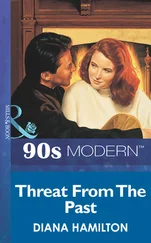“I don’t have long, that’s all.”
“Well, thank you so much for giving me a whole five minutes out of your busy schedule after seventeen years without a word and at two thirty in the morning. I’m so grateful.”
“Look!” said Jack, a little more firmly than he had intended. “I just don’t have all that long. I’m sorry, but it’s true. Anyway, why get dressed? You’re probably better dressed now than you were when we met the first time.”
Both Polly and Jack were straddling two different times. Principally they were in the here and now and it was late and their relationship was edgy to say the least. But also, for a moment, they were back there and then and it was glorious summer and love was flowering in the very shadow of Armageddon. The first time that their paths had crossed, before their encounter at the restaurant on the A34, when they had met and did not know even that they were meeting. At the gates of the camp, when out of the valley of death had ridden a handsome soldier mounted on a jeep who had found his way obstructed by a beautiful golden maiden, a symbol of peace.
“Yes, well, sartorial considerations tended to go out of the window in those days,” Polly replied.
“Not that you had any windows,” said Jack.
“No, I didn’t, that’s right. You can’t put windows in a woodland bender.”
Jack had not expected that he would feel things quite this violently, that his emotions would be so very much the same as they had been before.
“You were so beautiful, Polly,” said Jack. “So wild. I can see you now as if it was only a heartbeat ago. Like some kind of…” He struggled for words. Jack had never been big on flowery prose, but he had a go: “… like some gorgeous woodland creature running along the side of the road, tanned legs in the long grass, the sun in your hair.”
“Screaming at you to fuck off and die.”
It was true. To her shame (and the embarrassment of Madge), Polly had often chosen to ignore the non-aggressive principles of the peace camp and address the soldiers in most unpeaceful terms.
“We love you! We want to understand you!” Madge would shout.
“Fuck off! Fuck off! Fuck off!” Polly would add.
And in the evening around the fire the women would all agree that it was important to try not to give mixed signals.
“You were perfect, Polly,” said Jack, his eyes half closed. “A vision. I remember the first moment I saw you exactly. I have it fixed in my mind like some kind of idyll… like an Impressionist painting.”
“Jack, I was wearing a dustbin liner.”
“You still like plastic, I see.”
Polly remembered that she was wearing a rainmac and returned to the present with a bump.
“I don’t have a dressing gown, I’m afraid.”
In her punkier days Polly would not have thought twice about receiving guests in a nightie and a plastic mac, but times had changed. “I’m not used to entertaining under these circumstances. Sit down, Jack. I’d ask you to step through into the lounge, but I haven’t got one.”
“Hey, you never used to have a roof.”
“Yeah, haven’t I done well? I no longer sleep in the open.”
Polly was embarrassed about everything. What she was wearing, her little flat, her stuff. Why couldn’t he have given her some warning of his visit? Just so she could have got herself together? She would not have needed long. Just enough time to move house and acquire some beautiful and glamorous possessions. Shift her career up ten or fifteen gears and have a little minor repair work done on the cellulite that was beginning to appear on her upper thighs.
Instead Jack was seeing her life as it really was.
“Still rejecting capitalist materialism, I see.”
Jack had never been the most tactful of people.
“No. These days capitalist materialism is rejecting me,” Polly replied. “Getting its own back for the years I abused it. Sit down. You won’t catch anything, you know.”
There were two easy chairs for Jack to choose from, both, of course, already occupied with assorted stuff. Polly’s theory was that when you live in one room everything is a wardrobe. Chairs, tables, plantpots, casserole dishes. Everything is a place in or on which to put other things. In fact as far as Polly was concerned her whole flat was one big wardrobe and she was just one of the things in it. Jack could never have lived like that. Being a military man who had spent most of his life ready to pack up and leave at a moment’s notice, he knew that the key to comfort was organization.
One of Polly’s chairs was clearly an impossible proposition in terms of sitting down. Jack could see that there was no point in even thinking about unloading the dazzling cornucopia of things it contained. There were jumpers, books, newspapers, magazines, a partially dissected Russian doll. Stuffed toys, a guitar, an old typewriter, videocassettes, a radio, a bicycle pump attached to a deflated inner tube, coffee mugs and a roll of rush matting. Also wedged onto the chair was a Fair Trade South American string shopping bag containing three cans of baked beans and a packet of chocolate digestives. Polly was quite good about putting away groceries, but only quite. She always dealt with perishable items like milk and frozen peas the moment she got in from the shops, but dry and tinned goods she tended to leave in the shopping bag. After all, what was a South American string shopping bag if not a bag-shaped cupboard made of string?
On top of all of this was a strange, blue, plastic, tray-like object that Jack recognized immediately from the back of a thousand Sunday colour supplements. It was an abdominizer, a device for exercising the tummy. Polly had sent off for it two years previously. It had never been used, of course, and the unread instructions had long since been lost. The thing just drifted gently about Polly’s home from year to year, settling for a while before moving on silently and unnoticed. It had been on its current perch beside the shopping bag for about a month and was probably vaguely thinking about moving on. Perhaps to the clean clothes drawer, where there was always plenty of room. Apart from gathering dust the abdominizer’s only contribution to Polly’s life was to cause her the occasional pang of guilt. Not, however, a pang sufficiently strong to cause her to lie down upon the thing and gently roll her shoulders upwards by means of contracting her stomach muscles (while keeping her knees raised and her feet flat on the floor).
There was no way that Jack was ever going to be able to sit on that chair. That chair was like Doctor Who’s tardis. It was bigger on the inside; there was more stuff wedged between its arms than could possibly ever logically or physically actually fit. Jack could see that if he were to empty it into the room he and Polly would have to stand outside.
On Polly’s other chair was a big plastic sack of fertilizer. Jack found this item slightly surprising.
“Fertilizer, Polly?”
“I have a windowbox.”
Since the fertilizer was clearly a simpler proposition to clear than the contents of the other chair Jack lifted it to the floor. Not an easy task. This was a sack of fertilizer, not a bag but a sack.
“Jesus. Some windowbox. What are you going to do? Grow a tree in it?”
“I run a tight budget. Things are cheaper in bulk.” Jack thumped the sack down on the floor. Polly winced, thinking of the milkman below.
In the flat below, the milkman stirred in his bed. He glanced at his radio alarm clock. 2.40.
“Ha,” thought the milkman with sleepy satisfaction. The next time the upstairs woman asked him to turn down his morning radio, which he already had on so as you could barely hear it, he would be ready.
“Twatting great thumping and banging at two thirty in the morning, love,” he would say. “Nearly jumped out of my twatting skin. Couldn’t get back to sleep for an hour after…”
Читать дальше












